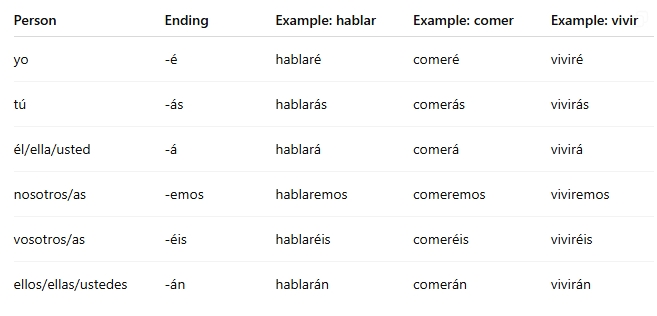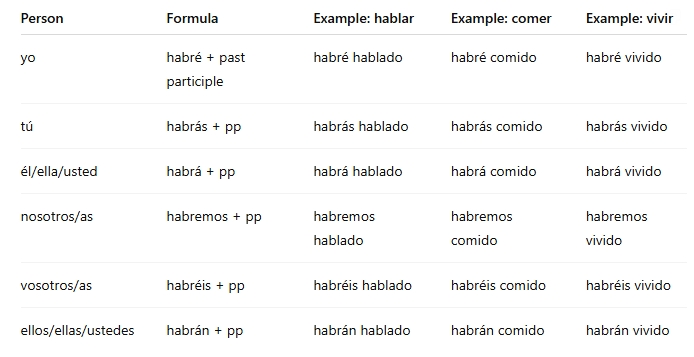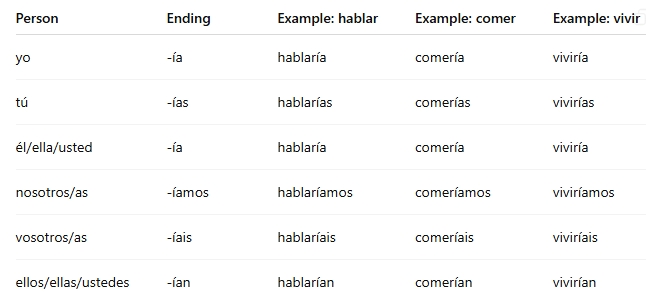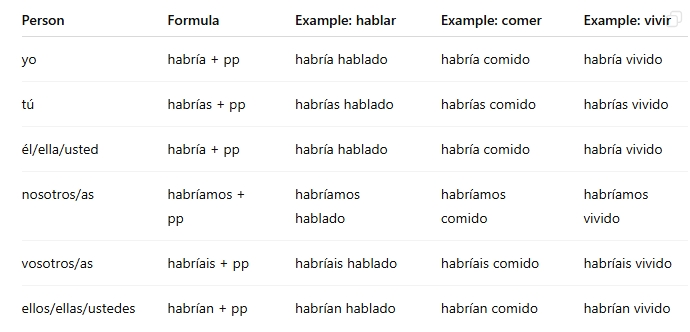spanish midterm
1/44
There's no tags or description
Looks like no tags are added yet.
Name | Mastery | Learn | Test | Matching | Spaced |
|---|
No study sessions yet.
45 Terms
diariamente
daily, every day
anualmente
annually, every year
Desgraciadamente
unfortunately
lamentablemente
regrettably
Afortunadamente
fortunately
Inevitablemente
inevitably
Necesariamente
necessarily
Forzosamente
by force, forcibly
francamente
frankly; honestly
efectivamente
indeed; effectively
primeramente
firstly
Posteriormente
later; afterwards; subsequently
finalmente
finally
prácticamente
practically; almost
seguramente
surely; probably; most likely
cualquier
used before a singular noun; person place thing - “cualquier persona puede venir” (any person can come)
cualquiera
used alone (without a noun) or AFTER a noun - “cualquiera puede hacerlo” “no es un coche cualquiera” (anyone can do it - its not just any car)
Algún
used before masculine singular nouns - ¿Tienes algún amigo en España? → Do you have any friend in Spain?
alguno / alguna
used alone (without a noun) - ¿Tienes libros de historia? — Sí, tengo alguno.
algunos / algunas
plural forms, some or a few - Algunos estudiantes no vinieron. → Some students didn’t come.
ningún
none: used before masculine singular nouns - no tengo ningún libro
ninguno / ninguna
not any: used alone
No vi a ninguno de ellos. → I didn’t see any of them.
Ninguna persona lo sabía. → No person knew it.
todo
singular = all/everything/the whole
todos / todas
plural = all/everyone
de repente/de pronto
suddenly/all of a sudden
Lo pasé fatal
i had an awful time/it was terrible for me
Pues verás
well, you see…
en fin
anyone / in short / well
resulta que
it turns out that
estaba muerta de vergüenza
I was dying of embarrassment, I was mortified
pues nada
well then, anyways
total que
so in the end
¡Qué corte!
how embarrassing / what a shame!
y bueno
and well.. (filler phrase)
entonces
so / then
le dio la risa
he couldn’t stop laughing / laughing uncontrollably
LO con valor sustantivador
used before an adjective, adverb, or clause, it turns that word into a noun-like idea
ex: lo bueno, lo importante, lo de Maria
el futuro simple
present/future probability

futuro perfecto
Used for recent past events or probability about past actions.

condicional simple
Used for what would happen or past probability.

condicional perfecto
Used for probability about a past event or what would have happened.

estaba/estuvo (imperfect or preterite)
—> estaría (becomes conditional)
esta (presente)
—> estará (becomes futuro)
ha estado (presente perfect)
—> habrá estado (becomes futuro perfect)
habia estado (past perfect)
—> (becomes conditional perfect)